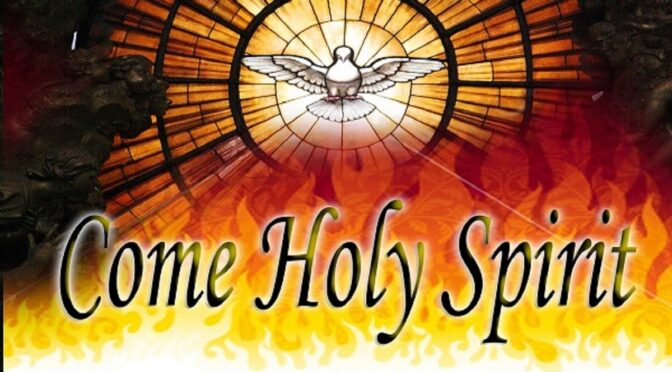Contents
Introduction
Since Monday of the Seventh Sunday of Paschal, Christians especially, Catholics have been preparing for the commemoration of the descent or gift of the Holy Spirit on the Apostles, on all believers and what generally, is termed the official birth of the Church. The feast of the descent of the Holy Spirit concludes the paschal period. What a wonderful way of marking the end of the feast of the resurrection of Jesus! Finally, Jesus fulfills his promise of another Paraclete, the spirit of truth, whom the Father will send in his name to the disciples, who will teach them everything, and remind them of all he has taught them. Henceforth, Christians should carryout Jesus’ instruction to take the Gospel to every ethnic group, baptizing them and teaching them to observe all the teachings of Jesus (cf. Matt 28:16–20). The disciples were prohibited by fear of the Jews of announcing the Gospels until they received the divine touch, the divine.….
Clarification of term and idea
Generally, Christians refer to this Sunday as the “Pentecost” Sunday. Pentecost due to the Greek term used by English Translations to render the Hebrew; secondly, probably because they think the term Pentecost either means Holy Spirit or is a synonym for the Holy Spirit; and thirdly, because it was on this day that the apostles received the gift of the Holy Spirit. When in Acts 2:1, Luke says “when the day of pentecostēs had fully arrived…”, what he means is when it was time for the Jewish feast of weeks, the disciples were with one accord in one place. It was on this day that the Holy Spirit descended on them. As could be seen, it is this Greek word pentecostēs, also found as pentecostes in the Vulgate (Latin Bible), that almost all the English Translations translated as Pentecost. It is only the Complete Jewish Bible that has Shavu-òt (see explanation later), which is the Hebrew word that is usually translated as Pentecost.
The divine empowerment
The readings of this Sunday centre on the same theme – the Holy Spirit. While Luke (First Reading) explains the descent of the Holy Spirit on the ‘D‑Day’, John (the Gospel) recounts Jesus’ promise to the disciples of the coming of the Advocate whom he will send from the Father, and who will explain everything.…
Conclusion
How do Christians understand the gifts and the operations of the Holy Spirit? As Paul noted in his First Epistle to the Corinthians, the gifts of the Holy Spirit are not for personal aggrandizement. They are for the common purpose. They are given for the good of all. How do you use yours? We must beware of those who force the gift of the Holy Spirit on themselves and on others. The disciples hid themselves for fear of the Jews. The Holy Spirit came and dispelled such fear. We must ask God to take away from us the spirit of fear. Shalom!
FOR DETAILS, GET YOUR OWN COPIES OF THE BOOK “THE WORD OF LIFE: SUNDAY REFLECTIONS” (vols. I and II)!! The reflection for the gift of the Holy Spirit (B) is found in vol. I pages 289–303 and vol. II pages 229–231. Happy reading!
For details on how to get it, contact the author on this link: https://m.me/uchennabiblia?fbclid=IwAR2yeg4a6sDGBp9QGkIvKj6FSADumMokN6lshdE0zuo-JHs6qOmlhA7jyHo or email me at: postmaster@uchennabiblia.com or simply send an SMS on 08116100926, and I will get back to you.

